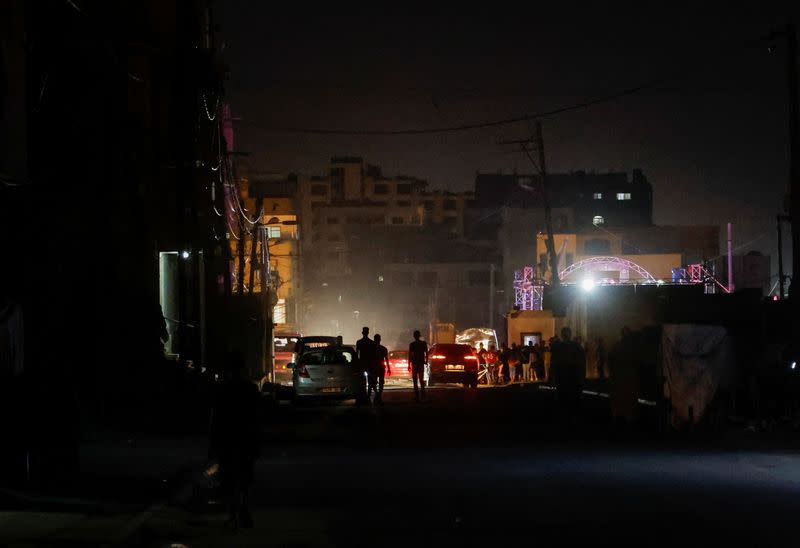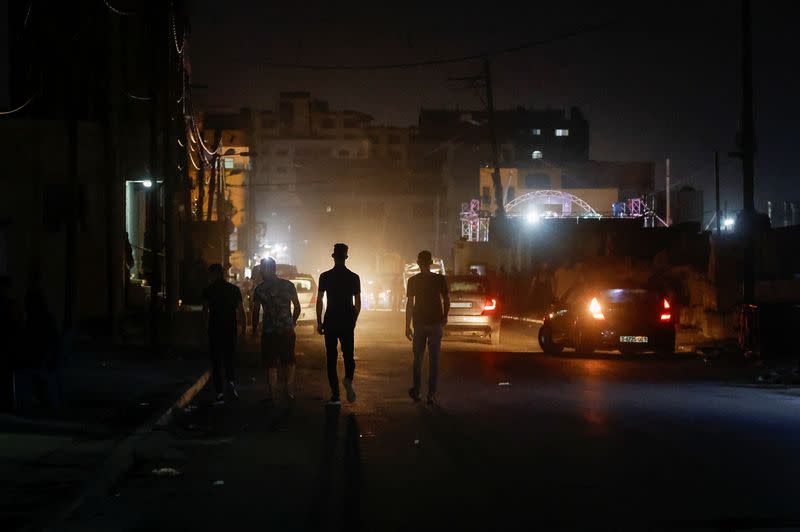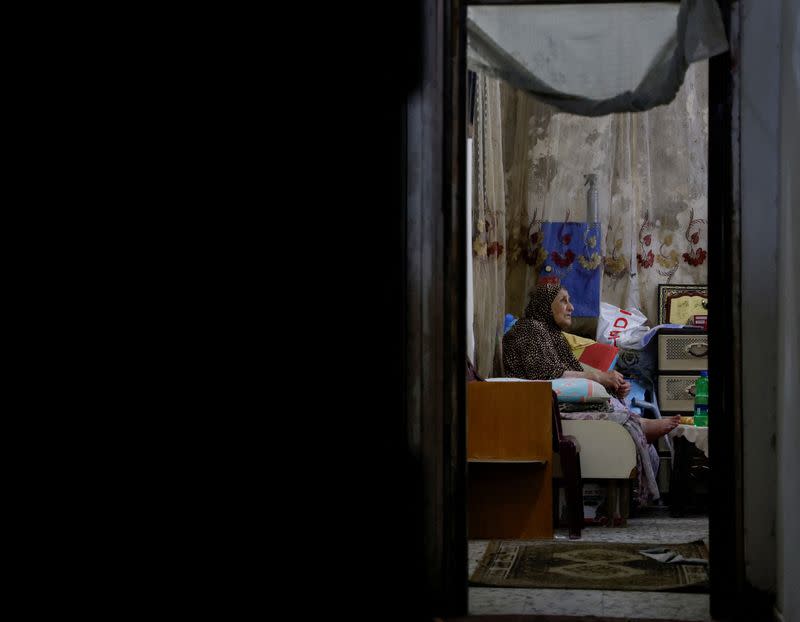Gaza power shortages worsened by heatwave as some residents call for protests
By Nidal al-Mughrabi
GAZA (Reuters) - A heatwave in the Gaza Strip that has sent temperatures over 38 degrees Celsius (104 Fahrenheit) worsened power shortages and sparked discontent among residents who expressed frustration with the ruling Islamist Hamas group.
Hamas, which has run the territory since 2007 blames a 16-year-long Israeli blockade for devastating Gaza's economy and undermining development, including the power network.
More than 2.3 million people live in a narrow strip of land squeezed between Egypt and Israel, suffering power cuts for up to 12 hours a day. The area needs around 500 megawatts of power per day in summer, according to local officials. It receives 120 megawatts from Israel while the enclave's lone power plant supplies another 60 megawatts.
The crisis has provoked an unusual wave of social media protests. Abdel-Hamid Abdel-Ati, a local journalist said, "our dreams have shrunk from (achieving) the right of return and liberating the homeland to one extra hour of electricity," he told Reuters.
Gaza residents are calling for the local generator to produce more power by operating the plant at full capacity.
Many residents shared videos of darkness at night and of their children sleeping on the floor to cool themselves. While asserting Israel was primarily responsible for the Gaza problem, they demanded action from Hamas.
Some called for street protests.
Jalal Ismail, the Hamas-appointed chairman of the Gaza Energy Authority, said the current problem was driven by the soaring heatwave.
Resolving the problem was a political issue, he said, referring to current divisions with President Mahmoud Abbas's Fatah faction, which runs the Palestinian Authority and the Israeli-led economic boycott on Gaza.
The Palestinian Authority, which pays for the electricity feed from Israel, blames the crisis on Hamas, whom it said was responsible for collecting electricity revenues.
"We haven't witnessed such heat in years, and we get electricity for around six hours a day, so I can't fan my children, so I am using the plastic tray to fan them because of the severe heat," said Yasmin Fojo, a mother of five from Nahrelbared camp in southern Gaza Strip.
Around 20 children squeezed into a small plastic swimming pool in the middle of a dusty unpaved road. Thousands packed the beaches, escaping the heat and power cuts at home.
Some homes and businesses use generators or solar panels, to overcome the lengthy power cuts. Those that cannot afford expensive generators use humble battery-powered led lights.
"I don't have money to buy a fan and if I did they would cut off the power and I end up in the heat, therefore, I am using those plastic trays," said a 90-year-old woman, Um Khattab Dula.
(Reporting by Nidal Almughrabi; Editing by Alexandra Hudson)




